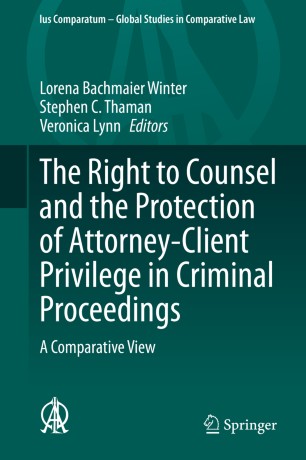

Most ebook files are in PDF format, so you can easily read them using various software such as Foxit Reader or directly on the Google Chrome browser.
Some ebook files are released by publishers in other formats such as .awz, .mobi, .epub, .fb2, etc. You may need to install specific software to read these formats on mobile/PC, such as Calibre.
Please read the tutorial at this link: https://ebookbell.com/faq
We offer FREE conversion to the popular formats you request; however, this may take some time. Therefore, right after payment, please email us, and we will try to provide the service as quickly as possible.
For some exceptional file formats or broken links (if any), please refrain from opening any disputes. Instead, email us first, and we will try to assist within a maximum of 6 hours.
EbookBell Team

4.3
18 reviewsThe book provides an overview of the right to counsel and the attorney-client privilege in the following 12 jurisdictions: China, Germany, Greece, Italy, Japan, the Netherlands, Portugal, Spain, Switzerland, Turkey, UK and USA.
The right to counsel is a fundamental right providing the accused access to justice in criminal proceedings. Lawyers can only practice their profession properly if clients have complete trust in their lawyer’s discretion. This trust is safeguarded by the attorney-client privilege, which is an indispensable part of every constitutional state and one of the most important professional duties of a lawyer. It is of particular importance in criminal proceedings regarding the protection of the confidentiality of lawyer-client communications in the different procedural stages, coercive measures as well as the various duties and interests in play. However, the communications protected by attorney-client privilege vary greatly from country to country. With regard to criminal investigations in an increasingly globalised world, where sophisticated tools enable broad digital investigations, there is an urgent need to clarify how this fundamental right is protected at both the national and supranational level.
Each chapter explores the regulations, practices and recent developments in each jurisdiction and was written by highly qualified experts in the legal field – from academia and practice alike. It identifies possible solutions and best practices, providing valuable insights for practitioners and law-making bodies alike regarding the actual protection (or lack thereof) of lawyer-client confidentiality in the pretrial and trial stage of criminal proceedings.